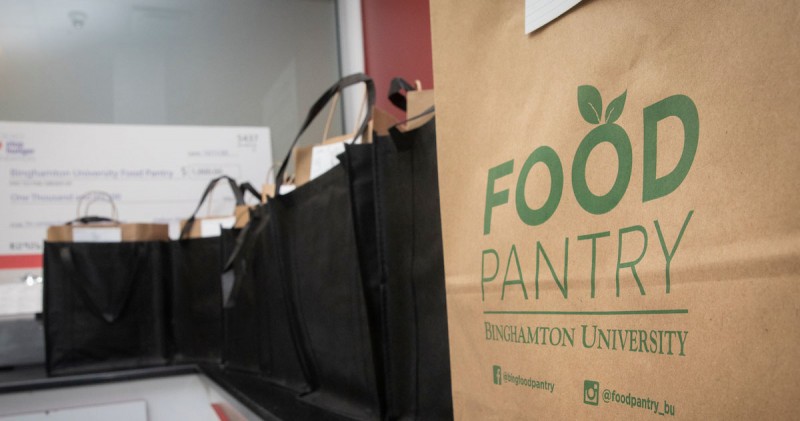A Lifeline in Crisis Settings


Image Source: Getty Images
As India observes World Mental Health Day 2025 under the theme “Access to Services – Mental Health in Catastrophes and Emergencies,” it is timely to reflect on a critical but often overlooked connection: the deep interdependence between nutrition and mental well-being. Crises, whether natural disasters, pandemics, or socio-political disruptions, often affect communities not only through physical loss but also through disruptions to food systems and emotional stability. In these settings, malnutrition and mental health challenges frequently reinforce one another, making it essential to address both concurrently to foster resilience and recovery.
As India observes World Mental Health Day 2025 under the theme “Access to Services – Mental Health in Catastrophes and Emergencies,” it is timely to reflect on a critical but often overlooked connection: the deep interdependence between nutrition and mental well-being.
Emergencies disrupt food systems, leading to food insecurity, which in turn can exacerbate mental health issues. Malnutrition, particularly deficiencies in essential nutrients like iron, folate, and omega-3 fatty acids, has been linked to increased risks of depression, anxiety, and cognitive impairments. In India, where a significant portion of the population faces nutritional deficiencies, the mental health impact during crises is profound. Studies have shown that enhancing food security can mitigate the psychological toll associated with inadequate nutrition. For instance, during the COVID-19 pandemic, organisations like Action Against Hunger provided emergency food aid alongside mental health support, addressing both physical and psychological needs simultaneously. Strengthening food security mechanisms during crises can significantly reduce psychological distress, enhance coping capacities, and build community resilience.
The Government of India has increasingly acknowledged the importance of integrating nutrition and mental health within public health systems. The National Mental Health Programme (NMHP) aims to integrate mental health into primary healthcare systems through initiatives such as the Tele MANAS, a 24×7 tele-mental health service that provides immediate psychological support across the country. The platform’s impact could be further amplified by incorporating nutrition counselling. Nutrition programmes such as the POSHAN Abhiyaan tackle malnutrition, while policies like the National Health Policy 2017 recognise mental health as a national priority, encouraging its integration into primary healthcare and the strengthening of mental health infrastructure. Meanwhile, the Fit India Movement promotes physical activity and dietary awareness, supporting mental health through lifestyle enhancements. Similarly, the PM-POSHAN (Midday Meal Scheme) ensures schoolchildren receive nutritious meals, thereby supporting cognitive development and emotional well-being. The scheme enables schools to function as community hubs for distributing both food and psychosocial support during emergencies.
Strengthening food security mechanisms during crises can significantly reduce psychological distress, enhance coping capacities, and build community resilience.
Programmes focused on women, adolescents, and vulnerable populations further illustrate the link between nutrition and mental health. The recently launched Swasth Nari, Sashakt Parivar Abhiyaan focuses on women’s health, nutrition, and preventive care. Through health screenings, nutrition education, and mental health support, it holistically addresses family well-being, especially during crises and emergencies. The Adolescent Health Program – Rashtriya Kishor Swasthya Karyakram under the National Health Mission delivers integrated services addressing nutrition, mental health, substance abuse, and non-communicable diseases, ensuring that adolescents receive holistic care. On the digital front, the Ayushman Bharat Digital Mission facilitates integrated health records, enhancing accessibility to services, thus impacting mental health. Community-based initiatives complement these government programmes, extending outreach through local awareness, peer support, and culturally sensitive care that bridges service gaps at the grassroots level. In Mumbai, SNEHA educates adolescents about nutrition, reproductive health, and emotional resilience, fostering grassroots mental health support that becomes particularly vital during crises. The Banyan in Tamil Nadu offers community-based mental health rehabilitation for homeless and vulnerable individuals, and Ashwini in the Nilgiris integrates tribal health services with psychosocial support. Similarly, NIMHANS’s community mental health outreach and Tata Trusts’ local interventions, such as rice fortification and counselling drives, bridge service gaps and foster mental well-being at the grassroots level. Initiatives like Mann Talks, a helpline and awareness platform, offer free mental health counselling and community dialogue to reduce stigma. These localised approaches demonstrate how embedding mental health awareness within nutritional interventions cultivates community-wide resilience, softening the blow of catastrophes.
Effective recovery in crisis settings requires the recognition that adequate nutrition is not merely about preventing malnutrition; it is critical for mental health restoration. Nutrient-rich diets enhance mood, cognitive function, and emotional resilience, enabling individuals to cope with stress and trauma. The COVID-19 experience demonstrated that interventions combining food security measures with counselling and psychosocial care allow individuals and families to navigate crisis-induced stress more effectively, highlighting the value of holistic approaches.
Effective recovery in crisis settings requires the recognition that adequate nutrition is not merely about preventing malnutrition; it is critical for mental health restoration. Nutrient-rich diets enhance mood, cognitive function, and emotional resilience, enabling individuals to cope with stress and trauma.
The Economic Survey 2024-25 calls for stronger mental health systems — embedding mental health education in schools, improving workplace well-being policies, and expanding digital care through Tele MANAS and artificial intelligence (AI)-driven solutions. India’s experience underscores the need for holistic, integrated approaches that address both nutrition and mental health during crises. Government schemes/programmes combined with digital innovations and community-based programmes provide a framework for resilience. The call is clear: policymakers, health practitioners, and community leaders must recognise that nourishing bodies is inseparable from nurturing minds. By embedding mental health into nutrition programmes and vice versa, India can equip its communities not just to survive crises, but to recover, thrive, and build stronger, more resilient futures.
Shoba Suri is a Senior Fellow with the Health Initiative at the Observer Research Foundation.
The views expressed above belong to the author(s). ORF research and analyses now available on Telegram! Click here to access our curated content — blogs, longforms and interviews.
link








